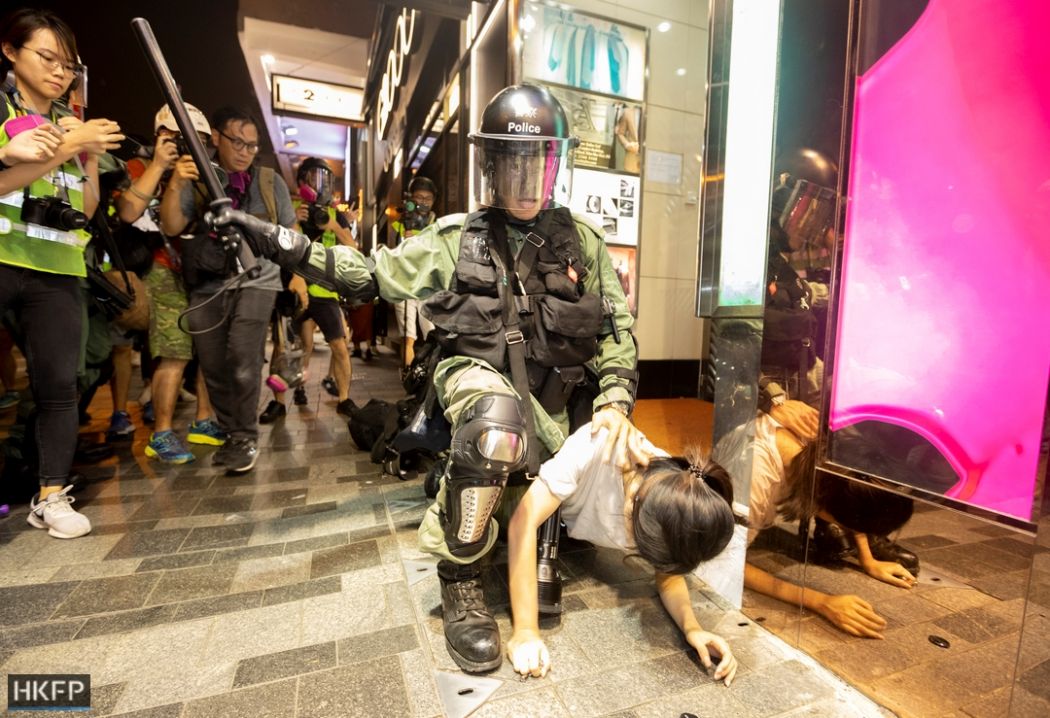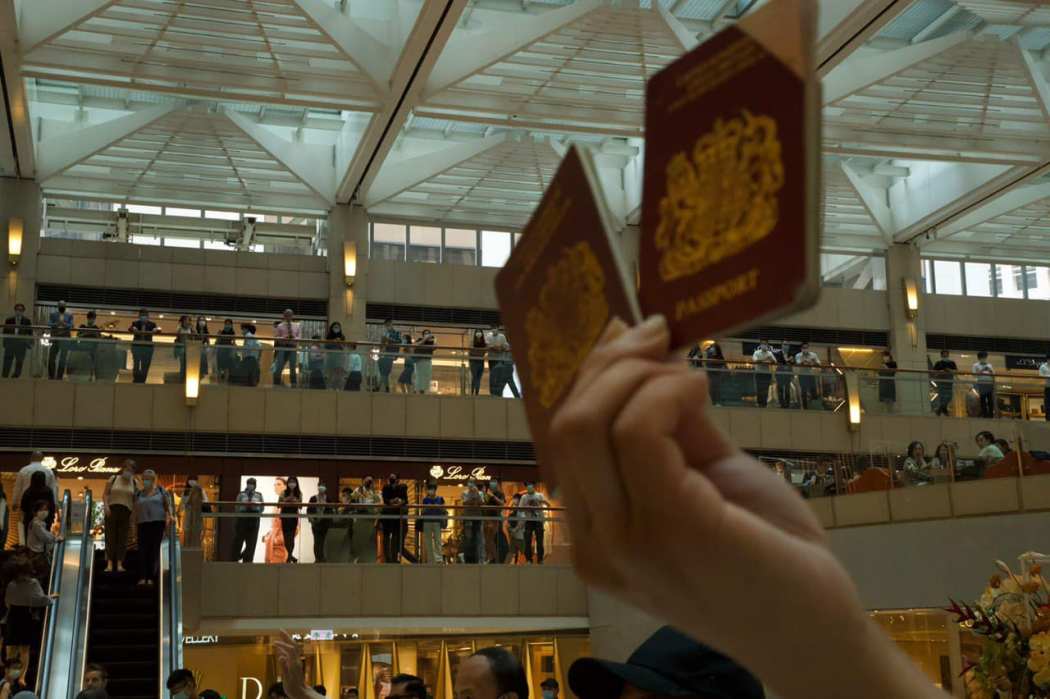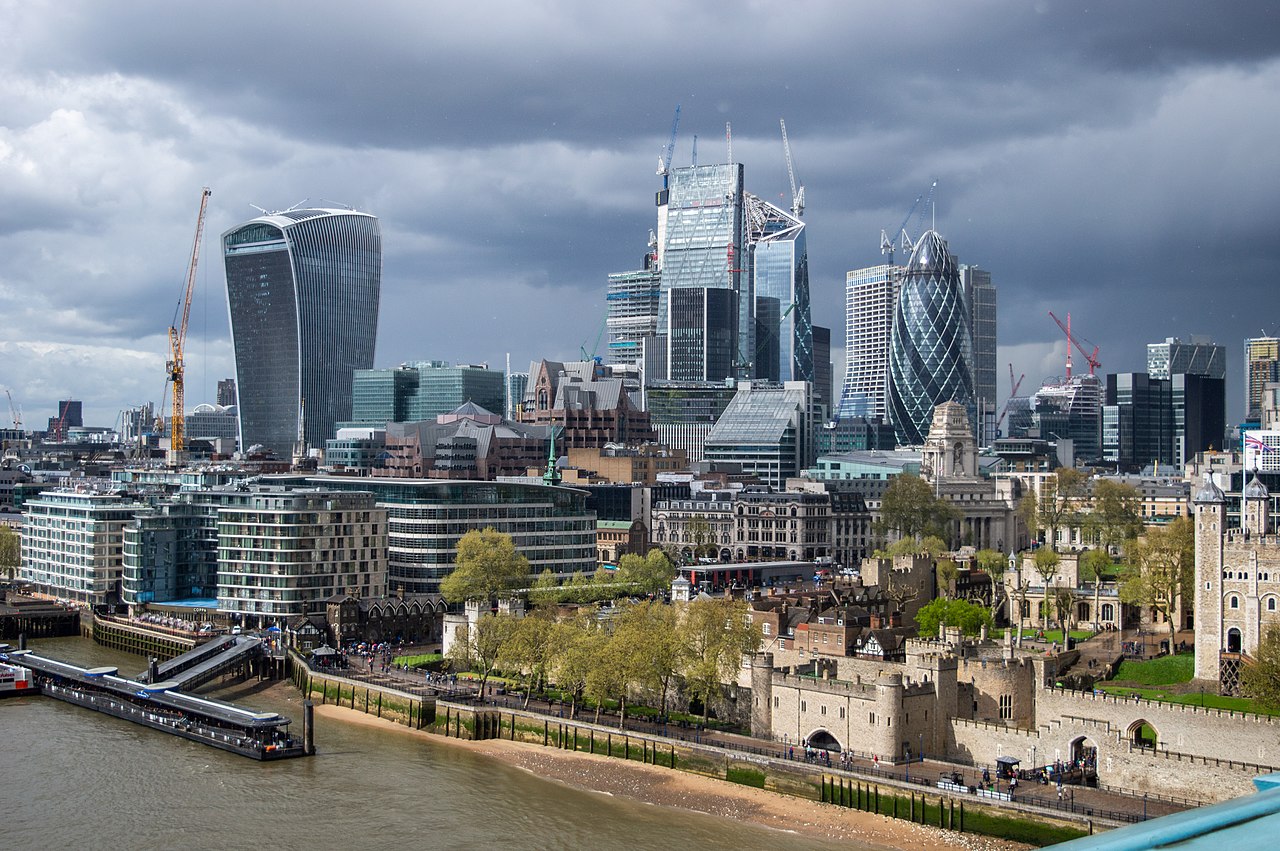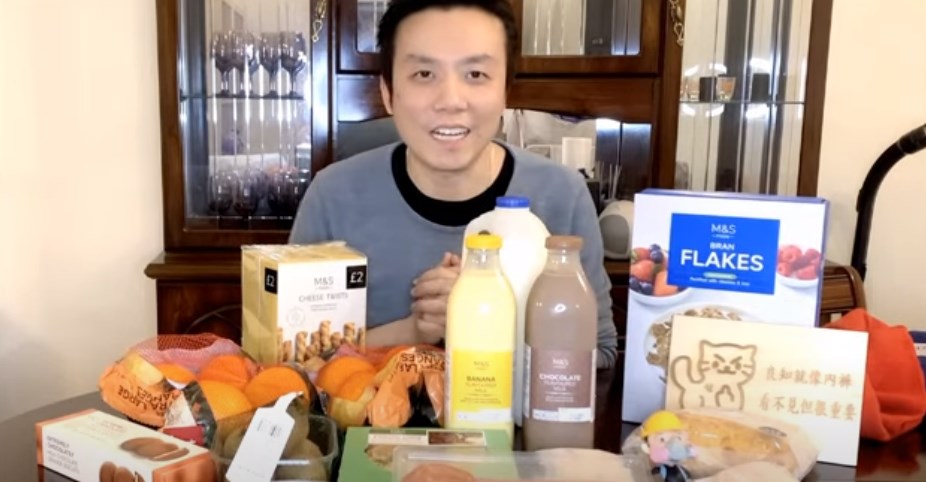At 63, Coby is decades older than many of the Hongkongers fleeing to the UK. But the energetic grandmother, who bursts into hearty cackles as she talks, is stoic about leaving the city behind. What matters now is supporting her family as they start again in England, she says.
Coby, who had previously visited Britain only once as a tourist, arrived in November, shortly after her daughter, son-in-law and their two children.

The three-generation family’s decision to exit Hong Kong reflects the deep societal rupture triggered by Beijing’s national security law, which has led to mass arrests and a swingeing crackdown on freedom of expression.
While young Hong Kong democracy activists, including high-profile campaigners like Nathan Law, are choosing to move to Britain as a safe haven, so too are families who may not have been on the protest frontlines but feel their way of life, values and future have been torn apart.
“Hong Kong is a special place and has always been a combination of Western and Chinese culture. Now that’s changing,” said Coby. “There’s an imbalance that I don’t like, where we have to focus only on the Chinese part of our identity.”
Her daughter, Candy, 43, who had also only visited the UK once before moving there, was spurred to emigrate by the still intensifying wave of government repression that followed Hong Kong’s huge pro-democracy protests in 2019. She and her husband had been among the millions of residents who joined the rallies.

“After the protests, the whole social environment changed. I saw police bullying young people, checking them on the street. Their next targets could be primary school students,” said Candy, whose children are aged six and one. “I was scared for everyone – myself, my husband and my children.”
Like many parents in Hong Kong, she was also disturbed by the patriotic education being pushed in schools as Beijing seeks to stamp out dissent and assert its dominance over the once semi-autonomous city. “I looked through one of my son’s compulsory textbooks and it said you had to love the country, love China. I don’t want that kind of brainwashing for my child,” she said.
Starting from scratch
The family, who sold their home to fund their move to southeast England, are part of a growing wave of Hongkongers arriving in Britain ahead of the launch of a new visa for British National (Overseas) passport holders at the end of January.
Coby and Candy both have BN(O) status, issued by the UK to around three million Hong Kong residents before it handed the city back to China in 1997.

BN(O) holders were previously only entitled to visit the UK for six months, without the right to work and settle. But after Beijing imposed the national security law on June 30 last year, Britain announced that it would offer those with BN(O) status and their immediate families a new immigration route — entitling them to live, work and study in the UK, with a path to full citizenship within six years.
Applicants must prove they have funds to support themselves for at least six months as well as paying visa fees and a surcharge to access the health service.
The British government’s lifeline gave Candy’s family the confidence to leave Hong Kong. But with no social or professional network and the UK economy hit by Covid-19, building a life there is far from easy.
Both Candy and her husband were well-paid IT workers in Hong Kong and have permission to work in Britain through a “Leave Outside the Rules” arrangement available to BN(O) holders while they wait to apply for their new visas. However, her husband is still struggling to find a job. Candy has taken a job in a warehouse, where she says speaking to colleagues is helping her to improve her English.

“It’s a massive pay cut for me, but the income is enough for family expenses and this role isn’t long-term. I hope that we can find more desirable jobs in future,” Candy said.
Coby, who says her time will mostly be taken up with childcare, admits that she is concerned about the couple’s prospects. “Here they need to start everything from scratch, but they are willing to take whatever job they can and understand it might not be the same position or level as before,” she said.
“For them, the most important thing is the future. We fled here. We can’t ask for everything to be the same.”
Fear of ‘white terror’
Hongkongers already established in the UK, who are advising those considering a move about practicalities such as housing, education and the job market, say they are receiving a growing number of enquiries from parents in their 30s and 40s willing to uproot their lives.
“The top reason they give for leaving is always politics,” said Nic, 29, who has lived in the UK for two years and set up Facebook group Lion Rock Hill UK last May to give information to Hongkongers about moving to Britain. The page has more than 14,000 followers and also promotes small Hongkonger-owned UK businesses.

“People are generally afraid of the ‘white terror’,” Nic explained, referring to the pervasive fear of repression and reprisals in Hong Kong. “They don’t know what’s going to happen next. They feel that there is an atmosphere of suspicion, like if you say something on Facebook that your colleague may report you.”
Families’ deep concerns for their future in Hong Kong often outweigh the significant drawbacks of moving to Britain, such as not speaking English or lack of confidence about finding a job, Nic added.
Jennifer, 30, a long-term UK resident also giving advice to Hongkongers, agreed. She cited the example of a former Hong Kong civil servant she had been in touch with who fled to Britain with his family after his boss warned him over comments he had made on social media about the government.
“That set off a fear for him – would it affect his family? Would it affect his career? People have to be so careful what they say now,” she said.

With families feeling increasingly desperate to escape Hong Kong as the walls close in, Nic and Jennifer said some were making the agonising decision to leave loved ones behind, not knowing when they may see them again.
It is often older family members who feel unable to move, particularly if they cannot speak English, they added, describing Coby – who speaks and understands some English, having regularly spent time with family in the United States — as a rare case.
Nic and Jennifer are themselves unsure if and when they will return to see relatives in Hong Kong, due to concerns that their work helping BN(O) holders might be used against them. Neither they nor Candy and her family felt safe to provide their full names for this story.
Freedom is paramount
Gavin Mok is one of those who left his parents behind. The 42-year-old, his wife and two daughters, aged nine and 11, arrived in Britain from Hong Kong in October after hastily handing in their notices at work, emboldened by the new visa offer for BN(O) holders. Both Gavin and his wife have BN(O) status.
In Hong Kong, Gavin was a trader on the stock market. He is now living off savings and running a YouTube channel 裸辭2UK to help other Hongkongers moving to Britain, which has already gained more than 5,000 subscribers.

The Cantonese part of the channel’s name translates as “resign without any future”, reflecting the professional uncertainty that lies ahead. But Gavin is philosophical about his options. “Psychologically I’m well-prepared to have a low-paid job in a supermarket or doing deliveries,” he said.
Despite the pain of leaving his parents and the challenge of restarting family life in a new country, he described the move as liberating. “Our parents and families are still in Hong Kong, which is difficult, but my parents, especially my father, encouraged me to leave because they know it’s for my own good and especially for the good of their granddaughters,” he told HKFP.
“Freedom is the most important condition for me. After the national security law came out, I really felt the pressure that I couldn’t speak about things. I feel freer to express myself in the UK,” he said.

Gavin said that latterly in Hong Kong he had attended fewer protests for fear that he would be arrested and the impact that would have on his children. In Britain, he does not try to hide his politics, or his identity. In each video he posts on YouTube there is a miniature figure in the foreground wearing a yellow helmet, mask and black clothing, the informal uniform of pro-democracy protesters.
However, the content itself is usually practical advice, including information on the price of groceries in British supermarkets and introductions to towns in southern England, where Gavin and his family currently live in rented accommodation and where he used to study.
He described his daughters as adapting well. They speak English and are staying in touch with Hong Kong friends online, he said.
Coby also believes her six-year-old grandson is happy in the UK so far. Although schools are now shuttered due to Covid-19 restrictions, when he has been able to get to class, he likes it. “There are fewer tests than in Hong Kong and he really enjoys his school lunches,” Coby said.
She confesses to missing her home in Hong Kong, having spent recent weeks in rental accommodation. But she can no longer see a life for herself there. “I can imagine going back for short visits to see relatives and friends, but not to resettle,” she said. “I will go where my family goes.”
Support HKFP | Policies & Ethics | Error/typo? | Contact Us | Newsletter | Transparency & Annual Report | Apps
Help safeguard press freedom & keep HKFP free for all readers by supporting our team
























